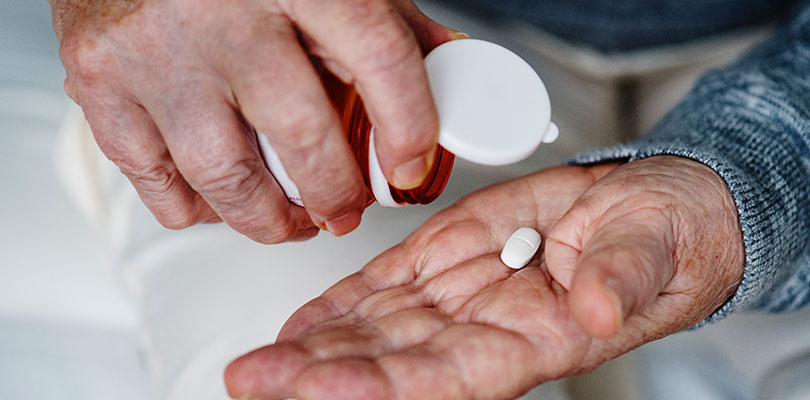What Is Pneumonia and What Causes It?
Pneumonia is categorized as an infection that causes the air sacs, of the lungs to fill with fluid or pus. Ultimately, this makes it difficult to breathe and reduces the oxygen levels in the bloodstream.
The sickness can impact one or both lungs and can range from mild to severe. Typically, the illness can last two to three weeks, but in some cases much longer.
While there are a variety of symptoms, some of the top signs of pneumonia include:
- Chills
- Fever
- Difficulty breathing
- Tightness in chest
- Chest pains when breathing
- Confusion, especially in older patients
- A cough, sometimes producing mucus
However, be aware that sometimes people have pneumonia and have very few or no symptoms. This is especially true for seniors. It can be difficult to detect without a proper medical diagnosis.
How Is It Detected?
Usually, if a doctor suspects pneumonia, they will order a chest X-ray and blood work. In some instance, mucus may be tested to see if certain bacteria are present.
Depending on the amount and severity of symptoms, additional testing may be necessary.
How Is Pneumonia Treated?
The best treatment for pneumonia is antibiotics.
It’s important for patients to take the medication as directed and complete the dosage even if you start to feel better. Plenty of rest and hydration will go a long way toward helping your body recover.
In some instance, cough medicine may relieve a prolonged cough associated with pneumonia, but you should consult your doctor before taking any over-the-counter medications.
Is bronchitis contagious? Acute bronchitis is often contagious and can be spread through coughs, sneezes, or being in contact with someone who is infected.
Who Is at Risk for Pneumonia?
Essentially, anybody can contract pneumonia, but there are certain people at higher risk. Individuals include:
- Children under the age of 2
- Adults over the age of 65
- Individuals who smoke and/or drink
- People who have chronic health conditions–such as COPD, asthma or other lung diseases
Mainly, those that have a weakened immune system are more likely to get pneumonia at some point in their lifetime.
Is Pneumonia Contagious?
Pneumonia is contagious and can spread person-to-person in many ways.
Common viruses and bacteria that are often found in a person’s nose or throat can spread to the lungs, or the illness can be transmitted airborne via coughing or sneezing.
Research has also indicated that it can also be spread through blood, such as from mother to child during delivery. The most common ways people become infected include:
- Community-associated pneumonia – This is when the disease spreads during regular life such as attending school or going to work.
- Healthcare-associated pneumonia – When the virus spreads in a medical facility such as a nursing home or through a breathing tube at the hospital.
How Dangerous Is Pneumonia?
Any illness that impacts your ability to breathe can quickly become life-threatening. Pneumonia is especially dangerous because it takes on symptoms that are often associated with flu or cold symptoms.
Sometimes people aren’t aware that they are very sick. While mild cases of pneumonia can usually be managed at home, symptoms can worsen quickly and require immediate care.
Sometimes, treatment comes too late and can lead to a deteriorated condition or sometimes death.
Pneumonia Prevention
Young children are offered a pneumonia vaccine as part of their regular shot schedule. It’s essential that children receive this treatment to help them avoid the illness as their bodies develop.
People over the age of 65 or those with a weakened immune system should consult their doctor about an additional pneumonia vaccination. Of course, washing your hands regularly always helps reduce the spread of illnesses.







